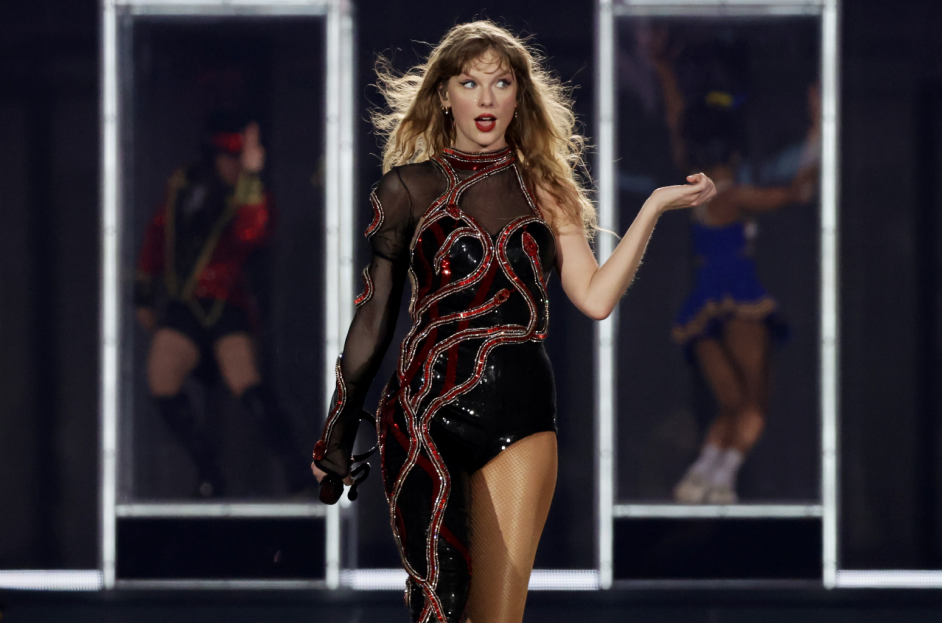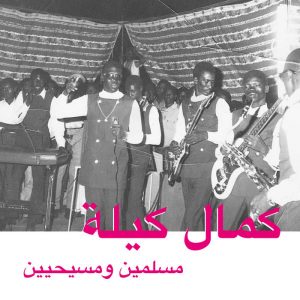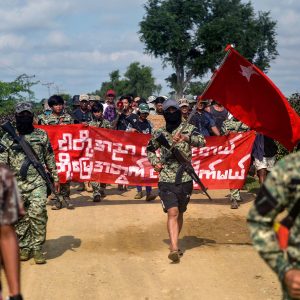Taylor Swift’s breakups have always been displayed on the world arena, with the usual formula of news outlets releasing every detail about her relationship online and Taylor announcing a new song about it. Her most recent breakup however, defied the status quo that the Swifties have come to expect: her breakup was transnational, political, and expensive. Taylor Swift single-handedly created relationship problems between Southeast Asian countries.
Taylor Swift knows Singapore “All Too Well.” The Singaporean government sought an exclusive relationship with Taylor Swift, arousing suspicion among other countries’ governments as to what actually went down with this arrangement. Thailand’s prime minister claimed that the Singaporean Prime Minister Lee Hsien Loomg offered $2 million–$3 million per show to Swift and her team. The caveat? Swift would only perform in Singapore in the Southeast Asian leg of her world tour.
Filipino lawmakers have urged their government to investigate Singapore, with one official, Joey Salceda, stating that the Philippines can’t “let things pass.” Salceda went a step further to say that the Philippines should “officially register its opposition” to Singapore because of this political move. The Indonesian Tourism and Creative Economy Minister, meanwhile, stated that Indonesia needed Taylor Swift to perform there for the Indonesian Tourism industry, which has been lacking in recent years. In Malaysia, the current ruling political party is being forced by opposition parties to answer for the missed economic opportunity of Taylor Swift and the government’s failure to make that arrangement, while Singapore got to flaunt the economic niceties that Malaysia lost out on. It’s safe to say, there’s definitely “Bad Blood” with Singapore.
Love Story: Association of Southeast Asian Nations (ASEAN)
Many political leaders in the Southeast Asia region believe that this action was not just an unfriendly move by their neighbor but also in direct opposition to the declaration of the Association of Southeast Asian Nations (ASEAN). ASEAN consists of ten member states who work as a collective agency in bolstering its three pillars: economic development, socio-cultural conditions, and security across all nations. One of the foundational principles of ASEAN is the understanding that decisions are consensus-based. Provisions have to be made with complete consensus of the ten member states; this might lead to weak policy initiatives, but it does ensure none of the countries leave the table unhappy. Although this is a stronghold principle of ASEAN, this ideological precedent is one that is strictly diplomatic, not legal. In other words, Singapore has no legally binding obligation to conform to this understanding set forth by ASEAN; it is simply a courtesy of member countries.
Darren Zook, a professor in the Political Science department at UC Berkeley, understands the involvement of ASEAN in this matter as the Southeast Asian countries simply just “invoking more of a principle that’s not legal.” The purpose of the Philippines invoking ASEAN is to send a clear message to Singapore that the countries have a communal sense of identity as Southeast Asia, and Singapore’s behavior goes against everything they stand by—a principle that the Philippines and the rest of Southeast Asia are growing tired of repeating.
“Southeast Asia shares a culture, and that’s where this fits because Taylor Swift is a cultural icon. Singapore is behaving in a very unsupportive way, but this isn’t an official pillar of ASEAN. So, if you’re going to officially register your opposition you would probably say, Singapore has been a bad actor by not following the very norm we all agreed upon, which makes us Southeast Asia in the first place,” says Zook.
Singapore’s behavior is anything but new. Singapore’s decision-making has typically been economically driven, more often than not at the cost of its neighboring countries. Singapore knew the diplomatic-based element of ASEAN couldn’t stop them from reaping all the economic benefits from Taylor Swift’s Eras Tour. The agreement between Singapore and Taylor Swift resulted in an increase in industry revenues by $60 million. Over the period in time that Taylor Swift performed in Singapore, regional demand for various airlines and hotels went up by 30%. The numbers say it all: there’s no doubt why Singapore snubbed its Southeast Asian family.
Why You Gotta Be So Mean, Singapore?
Singapore has always held an air of superiority over its Southeast Asian neighbors, dating back to its separation from Malaysia. Singapore and Malaysia separated in 1965, when Singapore wanted to become its own sovereign state due to the severity of the racial riots targeting Malay populations. The separation prompted widespread sighs of relief but was also met with instant regret and fear for Singapore’s future. The first prime minister of Singapore, Lee Kuan Yew, felt that he was left with no choice—delivering the news to the entire country with tears in his eyes, as he contemplated a somber future without Singapore’s Malaysian counterpart.
Under Lee Kuan Yew, however, Singapore flourished. The world was astonished by the unprecedented growth Singapore was experiencing—growth that far surpassed the economic and political growth of Malaysia in a single generation. Singapore strived to be a consistent actor in the global knowledge economy, focusing more on innovation, research and quality education as a top priority, leading to favorable results. When Singapore became newly independent ini 1965, GDP per capita was $500, consistent with the GDPs of Mexico and South Africa. In only 25 years, Singapore’s GDP rose to $13,000, easily exceeding that of South Korea and Portugal.
Malaysia didn’t take this move lightly. After all, they were under the impression Singapore needed them. Like any other breakup, Malaysia would painstakingly attempt to outdo Singapore in every category after this: Singapore’s bridge? Malaysia’s had to be bigger. A funny Singaporean comedian? Malaysia immediately condemned them. A Singaporean port policy? Malaysia will try to build a better one. Malaysia’s policy responses to Singapore essentially boiled down to the words of Swift herself: look what you made me do (Singapore). Singapore would always reciprocate this unspoken competition, and the pair soon became friendly rivals—talk about a bad ex.
Singapore’s historical relations with Malaysia serve as a reference point for how Singapore began acting purely as a single entity, never accounting for the Southeast Asian identity as a whole.
Singapore’s rampant economic success and constant need to be the best flow from their obsession with economic gain. “The best way to see this [the exclusivity deal] is as another act of Singaporean arrogance,” says Zook. Singaporean arrogance also stems from the founding principles of their political identity:
“It’s kind of like we [Singapore] are rich because we [Singapore] work hard and have good policies. You [other Southeast Asian countries] aren’t rich because you don’t have either of those things. And so, the Taylor Swift concert is just another pinch of salt on our open wound,” Zook observes.
In Singapore’s eyes, these actions were more than justifiable. Singapore always wants to boast their reputation of having exceptional innovations and groundbreaking ideas in any way they can. Their reasoning behind this move, as Zook puts it, can be condensed to “we do things nobody else has done, and we successfully do it. Singapore thinks in terms of money.”
Zook emphasizes how the Singaporean people tell a different story than the Taylor Swift success story the government boasts, however. The Singaporean people were upset that Taylor Swift—a Western performer—was receiving special treatment and getting essentially paid off to perform in Singapore. Singapore values its meritocracy—a foundational aspect that defines Singaporean culture. Receiving this special treatment defies everything a meritocracy stands for, especially for someone who isn’t Singaporean. Local Singaporean artists, who usually receive little recognition from the government, are particularly offended by this move. The arts industry in Singapore is usually pushed aside by policy provisions, with the government disproportionately favoring the academic side of Singapore. Singapore’s government was viewed as hypocritical in making back door deals with an American celebrity, while ignoring local talents in their own backyard.
Perhaps on the diplomatic end, Singapore will produce a lazily put together apology, but the country will likely be simultaneously basking in the newly gained revenue stream behind closed doors.
Karma
Why did Taylor Swift make this deal? Isn’t she perfect?!
This move did seem out of character for Swift, given her continuous emphasis on equality and consistent selfless actions towards her team during the tour.
Zook gives Swift the benefit of the doubt: “you know, she wouldn’t have known the context of ASEAN and she wouldn’t have known how in saying yes, Singapore [was being] hurtful to the Philippines or other countries in Southeast Asia,” said Zook. “It seemed like a good deal because I’m sure Singapore told her we’ll give you this money, and it’s going to bring [more people] to Singapore. And she’s probably like, oh, I can help the economy. That’s a thing, that Taylor Swift effect.”
The “Taylor Swift Effect” has become one of the most economically influential experiences a country can have: it’s Swiftonomics. In Swift’s mind, she was probably optimistic about the economic successes she was bringing to Singapore without thinking about how she was depleting other Southeast Asian countries of this same luxury.
Maybe Zook is just trying to appease his Swiftie students and avoid an onslaught of angry emails, but he brings up an important point of how much celebrities have an impact on politics.
Celebrities have an unavoidable influence on the trajectory of political agendas, giving them a certain responsibility in making their own decisions, but many don’t know the political implications of their decision. As much as every celebrity should take Professor Zook’s class on Southeast Asian politics, most unfortunately won’t.
Zook predicts that Swift will understand the repercussions of her actions and make the Philippines her first stop in the Southeast Asian leg of her next world tour. “She should have called me first, she didn’t know what she was getting into,” jokes Zook.
How to Shake It Off
Singapore has to decide whether they’re going to change their behavior to accommodate their Southeast Asian family or continue their arrogant behavior.
“It’ll be an ongoing discussion,” says Zook.
According to Zook, the trajectory of Singapore’s behavior will depend on whether or not Singapore will get the message from its neighboring countries: there needs to be a sense of cohesion and respect for these countries. Southeast Asia shares a culture claimed through ASEAN; it’s expected that all the countries recognize that.
For the Philippines however, they hold a specific type of resentment against Singapore. Singapore’s claim to fame stems from its service based white collar economy, resulting in Singapore’s dependency on foreign labor—specifically in blue collar jobs. The Philippines has been a prime target for recruitment in this sector. Although foreign workers make up about 36% of Singapore’s labor force, migrant workers are barred from becoming citizens entirely, further informing this sense of anxiety towards immigrants.
“For Singapore, the Philippines is a source of maids and only a source of maids,” says Zook. “It just adds to that resentment that Singapore looks down on the Philippines. So now I [Philippines] have to spend my money to go to Singapore to see someone who should have come to the Philippines.”
The Philippines is also an epicenter of music, further fueling its resentment—music is an integral part of their cultural identity. Music serves as a valuable symbol of rich Filipino culture and their colorfully vibrant history. By not even hosting a well renowned singer with as much cultural significance as Taylor Swift, the Philippines views this as a disservice to their cultural heritage. Taylor Swift garners a huge following in the Philippines. By forcing the Filipino population to travel to Singapore, this action is essentially a slap in the face to cultural identity deeply embedded in Filipino society.
So, will Southeast Asia get back together? Eventually, yes. However, an exclusivity deal like this is unprecedented. The event prompted a severe response from many Southeast Asian countries and created increasingly strained relations with Singapore. The issue won’t simply blow over, it’ll stand as a reminder of Singapore’s seemingly unchanging selfish decision making processes.
“Whether this will be the one thing that finally trips a reaction from Singapore, I don’t know. But, it’s the issue of Singapore’s perceived arrogance that will not go away. The Taylor Swift concert will eventually [go away],” says Zook.
It looks like Singapore’s next moves will be displayed on the global stage. Time will tell whether Singapore will eventually change their tune.
Featured Image Source: Billboard






Comments are closed.